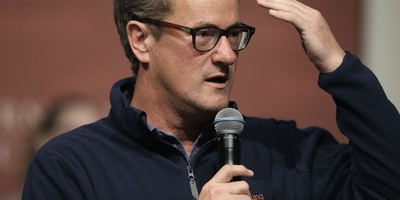That was a strange week, with intersecting conversations between and among Americans trying to absorb mind-crashing events that fed high and lowbrow attitudes, populist and patrician criticisms, sophisticated and naive pronouncements. There were absurdities and abominations, a massacre and amazing grace. Politics was writ large, accompanied by the rumble of rhetoric shaped to fit the emotional tyranny of the moment rather than great truths of the past.
The 21st century kaleidoscope was captured immediately on the front pages and the big and small screens, giving everyone a front row view of America on the move, connected electronically. It didn't make much difference where you were, the images flashed at warp speed across the nation.
We watched the president mourning with the friends and families of the nine congregants murdered while studying the Bible at Charleston's Emanuel African Methodist Episcopal Church. His eulogy in tribute to the Rev. Clementa Pinckney, slain with his parishioners, was eloquent, solemn and just right to describe "a man of God who lived by faith, a man who believed in things not seen, a man who believed there were better days ahead off in the distance, a man of service. ..." The president captured the right tone for the occasion, joining the singing of "Amazing Grace," the favorite hymn of Christendom, written by an 18th-century reformed slaver to describe his journey from shame to grace. A sense of renewal arose from the ashes of tragedy, like the triumphant phoenix of the spirit called by the president to soar above a dazed and grieving nation.
It was hard to imagine that this was the same president who colored the White House in the garish rainbow colors of the flag of gay pride to celebrate the Supreme Court's granting legal status to same-sex marriage. He vulgarized the people's house as though it were a theater playing reruns of "La Cage aux Folles."
Recommended
This didn't seem the moment to reduce the White House to a prop for projecting Attitude.
There was spectacle enough from others to sensationalize the politics of the Supreme Court, trivializing serious discussion. I was in Chicago where Lady Gaga reduced her reaction to farce. Standing on her balcony, overlooking what she took to be a gay pride parade on the street below, she stripped off her shirt and dispatched to social media a photograph of herself with "Gay Pride" scrawled on her belly. The paraders were actually marching in celebration of Mariachi pride, part of the Chicago Mariachi and Folkloric Festival in Millennium Park across from her hotel. Someone later added a sombrero to her Instagram image.
Meanwhile, over at a University of Chicago bookstore, a display of famous graduates and professors included the collected nonfiction of Nobel laureate Saul Bellow. This dead white man still has much to say to us though he departed this vale a decade ago.
In an essay, "Reflections on Alexis de Tocqueville: A Seminar at the University of Chicago," Bellow warns of "the tyranny of perceptions," opinions of victors that hang over us like a smog, visions of those who care little about the past but only get excited in the present by surveying themselves. Attachments based on '"tradition" or "common habits" are elusive. Bellow thought Americans live in a state of incessant change of place, feelings, and fortunes, a "self-saturated population," enjoying a collective narcissism. That was before the selfie, incessant texting, Facebook and Twitter, but he was already worried about "the reign of the mass media" determining emotions, opinions and the exercise of the "intellect."
The saturation of the latest "received wisdom" becomes the determinant that's most difficult to challenge. Barack Obama and Hillary Clinton leaped on the bandwagon for gay marriage, counting on everyone forgetting how they once spoke of their solemn conviction that marriage is a sacred bond between a man and a woman.
Saul Bellow had something to say about such conformism, too. In an essay entitled, "There Is Simply Too Much to Think About," he offers a mock opinion that he is "for all good things and against all the bad ones." Not everyone is amused by the dinner-table jest. "As the allure of agreement -- or conformism -- grows," he said, "the perils to independence deepen." This is true for all of us. Packaged opinion wins big numbers and rates high in the polls, but rarely attracts trust.
Many Christians feel under siege for their faith in the culture wars, with the sexual revolution running out of things to revolt against. But anyone who listened to the mourners in Charleston, or paid attention to the words of "Amazing Grace," would feel reassured that the power of faith rises from the ashes of vicious and violent prejudice. Justice Antonin Scalia scoffs at the "mummeries" of the majority opinion. But no thanks for the mummeries.

























Join the conversation as a VIP Member